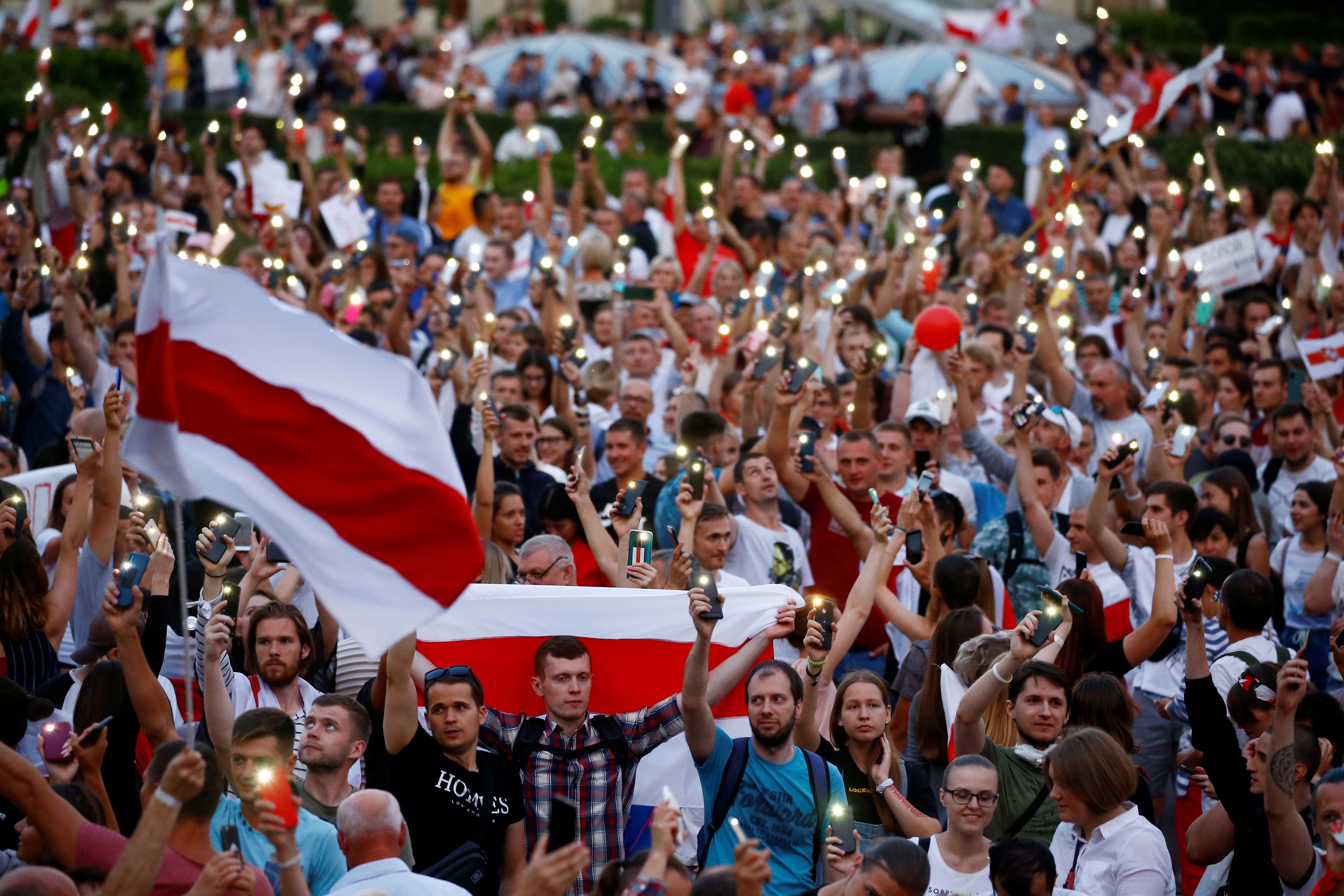The EU's Belarus problem: While Belarus' strongman president Alexander Lukashenko vowed on Wednesday to crack down on the thousands of Belarusians still protesting against the country's recently-rigged elections, EU member states were convening for an emergency session on the country's deepening crisis. So far, the European Commission has pledged 53 million euros to support Belarusians, including two-million going towards those wounded in the recent government crackdown, as well as 1 million aimed at bolstering an independent media that has been under assault for decades. Most of the funds will go towards the country's post-pandemic economic recovery. However, to date, the EU has not explicitly called for Lukashenko to step aside and has failed to reach a consensus on whether to hit Minsk with sanctions. That's because some member states, such as Hungary, are friendly with Lukashenko, and have called for more dialogue with Minsk, rather than punitive measures. But power brokers in Brussels, including German Chancellor Angela Merkel and French President Emmanuel Macron, have made it clear that swift action must be taken to protect the Belarusian people, and to stave off a potential Russian intervention in the crisis by Lukashenko's longtime frenemy Vladimir Putin (i.e. Ukraine 2.0).
South Africa's COVID corruption probe: South African special investigators allege that government institutions, including the capital city's health department, cut crooked deals for coronavirus-related tenders — including for PPE procurement, quarantine sites and disinfectant equipment — totaling a whopping $290 million. It's the latest challenge for President Cyril Ramaphosa who took over as head of the African National Congress party (ANC) in 2018 after the ouster of the party's disgraced former leader Jacob Zuma. At the time, Ramaphosa pledged to root out corruption, bring "ethics into politics," and revive the country's battered economy, but attempts at reform have so far proven elusive, largely because of dysfunction and competing factions within the ANC itself.
A different way to fix the WHO: US President Donald Trump isn't the only one who thinks the World Health Organization is too weak, poorly funded, and beholden to national interests to do its job well — it turns out France and Germany agree with him. But unlike Trump, who is walking out on the organization, Paris and Berlin are proposing massive reforms that would give it more money and stronger oversight powers, according to a Reuter's exclusive. The details of the proposal are yet to be ironed out ahead of discussions as soon as next month. We're watching to see three things. First, how do Germany and France plan to get countries to pony up more dough in the middle of a global recession? Can they really give the WHO more muscle to force member states to do things that are in the interest of global public health? And lastly, are the skeptical Americans and the Chinese going to agree?More For You
People in support of former South Korean President Yoon Suk Yeol rally near Seoul Central District Court in Seoul on Feb. 19, 2026. The court sentenced him to life imprisonment the same day for leading an insurrection with his short-lived declaration of martial law in December 2024.
65: The age of former South Korean President Yoon Suk Yeol, who was sentenced to life in prison on Thursday after being found guilty of plotting an insurrection when he declared martial law in 2024.
Most Popular
In an era when geopolitics can feel overwhelming and remote, sometimes the best messengers are made of felt and foam.
The Hungarian election is off to the races, and nationalist Prime Minister Viktor Orbán is facing his most serious challenger in 16 years.
Does skepticism rule the day in politics? Public opinion data collected as part of the Munich Security Conference’s annual report found that large shares of respondents in G7 and several BRICS countries believed their governments’ policies would leave future generations worse off.
